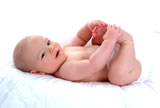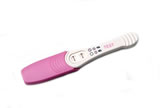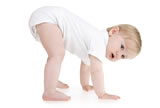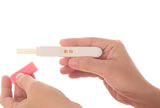Is it Risky to Have a Baby after 30?
| on 24th January 2013 |
Are you planning to have a baby? Becoming a mother is probably the most significant decision in a woman's life because everything changes as soon as the child is born. Well, some women have been planning to have a baby for a long time, and unsurprisingly, they are still busy building their careers, still planning to have a baby.

Is it Risky to Have a Baby after 30? What You Should Know
Are you planning to have a baby? Becoming a mother is probably the most significant decision in a woman's life because everything changes as soon as the child is born. Well, some women have been planning to have a baby for a long time, and unsurprisingly, they are still busy building their careers, still planning to have a baby. Soon, they realize that they have reached the age of 30 and beyond, and they are wondering if it's alright to still have a baby. Some other women already have babies and they wonder if there are any risks if they have a baby after they have turned 30. Nowadays, it's quite common for women to have babies after they have turned 30. In fact, it's noted that working women around the world have delayed motherhood and many of them are only conceiving for the first time in their mid-thirties. If you have decided to have a baby above the age of 30, you should be pleased to know that there are many women who are also taking the same step. Of course, you should also know that there are some risks, and how you can handle them.
Quality of Eggs
Probably the first thing that your doctor will tell you is the fact that the quality of eggs in a woman aged 30 or older is not exactly "ideal". As soon as a girl reaches puberty, which is around the age of 12, she becomes a woman because her body will start to produce eggs. In most cases, an average woman will cease to produce eggs around the age of 45. According to studies, the eggs produced by women aged 20 up to 30 are considered to be the highest quality and most fertile. In this sense, you should think a little bit about having a baby after 30 because your eggs are not at an optimal level. What's one way around this problem? You need to do some early planning. If you are a busy working woman who's too busy to have a baby when you are in your twenties, you can freeze your eggs at this time. When you are ready to have a baby at a later age, you can try IVF to conceive a baby.
Down's Syndrome
One of the major risks of pregnancy above the age of 30 is the increased chance of having a baby with Down's syndrome. At the age of 30, the chance that a woman will deliver a baby with Down's syndrome is estimated to be 1 in 1,000 which means that it's 0.1 percent. While it is not considered to be a high chance, the longer you delay, you should know that the probability will increase quite significantly. At the age of 35, the chance that a woman will deliver a baby with Down's syndrome is estimated to be 1 in 400 which means that it's 0.25 percent. If you are planning to have a baby after 30, it's best that you conceive as early as possible. Currently, it is possible to perform genetic testing to find out if your baby may be suffering from Down's syndrome. This is done by inserting a needle into the belly to extract some fluid from the placenta. In the event that the baby is found to be suffering from chromosomal disorder, you have to decide if you want to proceed with the pregnancy or terminate the pregnancy.
Infertility Issues
After the age of 30, an average woman produces less eggs and an average man also produces less sperm. This means that you and your partner may find it harder to conceive in the natural manner. The longer you delay having a baby after the age of 30, the harder it is to succeed naturally. Obviously, it's best to be in the prime of your health and fitness when you are trying to conceive but sometimes, we all get carried away. At this time, there may be issues of infertility. Generally, you are advised to seek the advice and help of a doctor if you and your partner have been trying for a baby for more than a year. When you meet with the doctor, you may discuss some of the available fertility treatments. One of the most popular methods is In Vitro Fertilization (IVF). However, there are also other methods of treatment so you should find out from your doctor.
Miscarriages
It's quite well known that pregnant women above 30 are more likely to suffer a miscarriage in comparison to younger pregnant women. According to a study, the risk of miscarriage in the first 20 weeks for an average pregnant woman under the age of 30 is around 12 percent to 15 percent. On the other hand, the risk of miscarriage in the first 20 weeks for an average pregnant woman above the age of 35 is 20 percent. This is quite scary because it means that one out of five pregnant women above the age of 35 will suffer a miscarriage in the first 20 weeks. To deal with this risk, it's best to be extra careful when you are having a baby after the age of 30. If you feel the slightest discomfort or pain, you should go to the hospital for a checkup.
Placenta Previa
Pregnant women above the age of 30 will also suffer higher risks of placenta previa. This is a complication where the cervix is either partly or completely covered by the placenta. In a normal situation, the placenta should have moved near the top of your womb by the third trimester, thus, opening the way to the cervix. The risk of placenta previa is 1 in 200 or 0.5 percent for all pregnant women but the risk is higher for older women. It is the major cause of painless bleeding and the hemorrhage can be dangerous. If you are suffering from placenta previa, go to your doctor immediately. In such a state, the bleeding has to be stopped and it may be necessary to perform a cesarean delivery.
Video Source: Youtube
Copyright © 2012 Babiesbase.and respective owners. All rights reserved.
Other product and company names shown may be trademarks of their respective owners.











 Sign up for our week by week
Sign up for our week by week